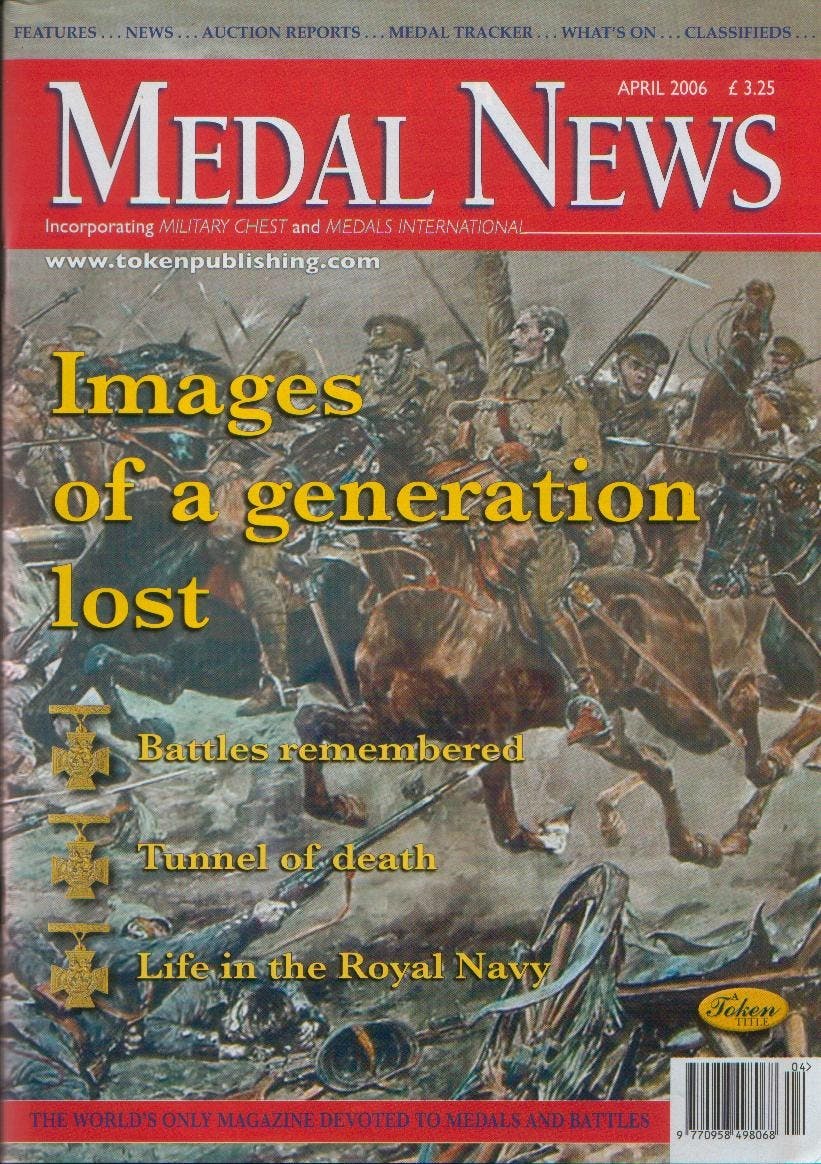To wear or not to wear
Volume 44, Number 4, April 2006
With the announcement that the Pingat Jasa Malaysia medal can be accepted but not worn by eligible veterans the debate over what is and isn’t acceptable to place on one’s chest is opened anew. There are those who say that they’ll wear the medal regardless; others who say that these medals, and others like them, have no place amongst “proper” decorations and still more who draw distinctions between these “Government sanctioned” awards and those that can be purchased and are not “awarded”. The debate is certain to run and run and nothing I say here will change that but I would like to mention a few things if I may. Firstly it is important to make clear the differences between the various medals available. Some, like the PJM, the Saudi Kuwait medal and others are “official” foreign decorations that another government has conferred upon veterans, which our government has graciously accepted on their behalf but which cannot be worn as a British medal has already been awarded for that same action/conflict. Then there are the “unofficial” or “commemorative” medals – usually produced by a commercial company that then sells them, often with the backing of a veterans’ organisation which then benefits from their sale. Within this group is a further division – medals that can be bought by anyone as a “commemoration”, and those that can only be bought by bona fide veterans or their next of kin who have to formally apply for them and be vetted to ensure eligibility. There can be no doubt that in recent years the number of medals that a veteran may potentially wear has grown enormously and there are many who bemoan the fact that Remembrance Day parades are now much louder affairs as the jangling of the “gongs” gets louder! However there are equally those who insist that the medals that grace so many chests are just as hard won as any officially awarded so why should any be denied the right to wear them? To a certain extent you can understand the view point – after all a man who was taken prisoner early on in World War II can hardly be said to have not “done his duty” but a whole raft of medals that he could have potentially won with his regiment had he not be captured would be denied to him. Similarly those veterans who took part in specific campaigns like Normandy or the Arctic Convoys argue strongly that the criteria for the medals they were given as participants in those actions – the France and Germany Star and Atlantic Star respectively – were such that many have been awarded them without going anywhere near the horrors of the beaches or the nightmare of the Arctic seas. They argue not that the awards should have had more stringent criteria but rather that they should be awarded something else to show that they were “in the thick of it” – and as it is practically impossible to ever foresee any government granting that request, private companies have “filled the gap”. On the face of it the case for the PJM does seem different to that of the commercial medals as it was issued by a government, but there are similarities – in the case of the Normandy veterans, the Bomber Command veterans and those who served in the Convoys the British Government insists they can’t have a separate medal as one has already been awarded that covers their service – so too with the PJM with the argument being that Malaya/Malaysia veterans already have the General Service Medal and relevant clasps. With this in mind is it right to see the PJM or Kuwait medal as being any more suitable for wear than say the Normandy veterans medal or has the Government done the right thing in its ruling? Of course the inclusion of the word “formal” in the statement regarding wear of the PJM does leave the whole thing open to interpretation and it has been mooted that a “blind eye” may well be turned. The issue is of course an emotive one and there are strong arguments on both sides. Those insisting that Queen’s regulations must be strictly adhered to and that NO unofficial medals, even those sanctioned by a government can be worn unless specific permission is given arguing their case very persuasively in one corner and those stating that “badges of service”, whether bought or awarded, sanctioned or unsanctioned should be worn by any who earned them, should they so wish, arguing just as well in theirs! Which is the right way? Well it depends on your view point of course and I for one do not have a definitive answer. Whilst I do feel that the award or purchase of medals does have to have its limits (we all know of countries who seem to award a medal for just about anything and don’t really think we’d want to see that over here) I also know that when I next see a veteran sporting a Normandy medal or proudly wearing his PJM I certainly won’t be telling him he shouldn’t be. One thing is for certain, he might not be “allowed” to wear it officially but his right to wear it will be far greater than mine to tell him he can’t.
Order Back Issue
You can order this item as a back issue, simply click the button below to add it to your shopping basket.

